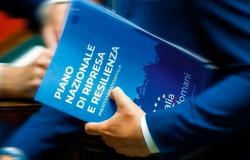There are two original productions – created as part of the “Fus” project issued by the Ministry of Culture – which with their uniqueness will enrich the schedule of the 2024 edition of Sounds Against the Windsummer performing arts festival promoted by Aucma with the support of the Ministry of Culture and the Umbria Region.
The September 7 at 18 at the Augustus Bridge Narni “Sakamoto conversations” new project by Giovanni Guidi which ventures into the world of the great composer and pianist Ryuichi Sakamoto, one year after his death (March 2023).
“Sakamoto conversations” is made up of quotes from songs taken as inspiration for improvisation, but also of original compositions, the result of a path of approach and research that touches on the different areas of the Japanese artist’s prolific career. Sampling, voices, phrases contribute to completing a soundscape that is never a simple homage to the past, but a living dialogue that aims to think about the present and project itself into the future.
Always the September 7 but at 9pm at the Roman amphitheater of Carsulae in Terni it will be the turn of Umbria – Corsica “Sister Islands”a project by Micrologus (Umbria) and A’ Filetta (Corsica) on the musical relations between Corsica and Umbria.
«Thanks to the Franciscan movement which quickly spread from Umbria to Tuscany and then also to the “Island of Beauty” – the two entities explain in synergy – we find elements that are not only musical which unite these two regions. Starting from the toponyms: Bastia Umbra/Bastia, Calvi dell’Umbria/Calvi, Corbara just to give a few examples. The Corsican language also has more in common with the Umbrian dialect than the Corsican language has with the French language. We find some traditional Umbrian songs, especially paraliturgical and originally monodic, in parts of Corsica in 3-voice polyphonic form in the traditional style of Paghjella. In Corsica any monodic melody is polyphonized, just add a bass to the second which carries the melody and a bass to the octave of the bass. the third which above all has a harmonious and ornamental function. We therefore have praises for Holy Week, which are monodic in Umbria and sung in polyphony in Calvi during the granitula procession.
The father of the Corsican homeland Pasquale Paoli had his family origins in Umbria, if you carefully observe the heraldic coat of arms of the Paoli family you can recognize the shaved head of the Moor which will then be multiplied in the Corsican flag. The Paoli family was originally from Gubbio and Pasquale was the son of Giacinto whom the Gubbio historian Rinaldo Reposati depicted and included among the illustrious men of Gubbio. Their residence in Gubbio was located in via della Repubblica which in fact until about 70 years ago was called “Via Paoli”.
In Gubbio there is the monodic survival of a song which in Corsica is considered their anthem longed-for independence, the “God save you Queen”. At the end of the Ceri race, once they arrive in the Basilica of Sant’Ubaldo, all the ceraioli sing the lauda “O lume della fede”, which has exactly the same melody, except that in Corsica it is sung with the text dedicated to the Virgin and for three voices .
The madrigal also has a presence in the Corsican tradition, the lyrics are sung in the Crusca language (ancient Tuscan) and are polyphonic. Examples of fourteenth-century polyphonic madrigals will alternate with those still preserved in the oral tradition of our sister island.”
«It was in 1978 that some very young people from A Filetta – led by Jean-Claude Acquaviva, driven by a strong desire to contribute to the protection of a declining oral heritage – began their journey, a long journey, punctuated by discoveries and wonderful encounters. The six singers have “encounters” with other cultures written into their musical DNA. This explains why they never wanted to limit their journey to the perimeter of their roots and, encouraged by the tradition they inherited, they quickly opened up to others (other territories, other disciplines, other artists). The six male voices have rewritten the Corsican oral tradition in an extremely original way and have reached a level of great refinement in polyphonic singing. The repertoire produced today by this vocal sextet faithfully reflects what, since the beginning of the 80s, they have looked forward to: sacred music is accompanied by profane songs with multiple influences, soundtracks with Bruno Coulais, creations for the choreographies of Sidi Larbi Cherkaoui, choirs for an ancient tragedy or pieces of a requiem requested by the Saint-Denis Festival. A Filetta’s music is dedicated to a vision of the world that rejects, without any closure, ambiguities of identity. This meeting with Micrologus is another step on this path of brotherhood with other repertoires and cultures.”
Pre-sales on TicketItalia and TicketOne circuits






